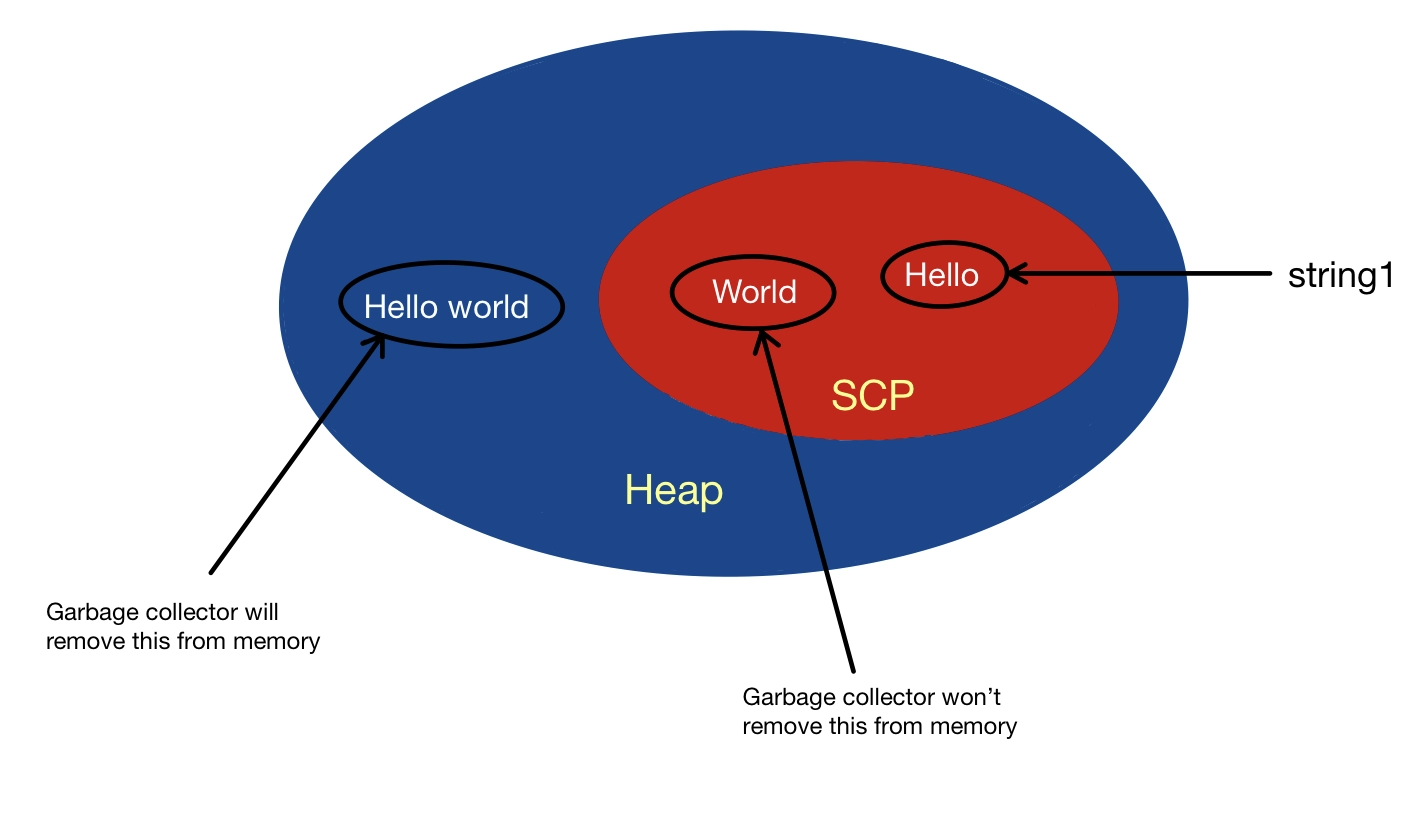Why Are Strings Immutable in Java? Insights right into Memory Performance
Why Are Strings Immutable in Java? Insights right into Memory Performance
Blog Article
Unalterable Strings: A Key Part in Ensuring Information Uniformity and Integrity
In the world of information monitoring, the value of immutable strings can not be overemphasized. The concept of unalterable strings goes beyond plain triviality; it is a linchpin in the complicated internet of data governance.
The Concept of Unalterable Strings
Unalterable strings, an essential concept in programming, describe strings that can not be customized when they are produced. Fundamentally, as soon as a string value is assigned, any kind of procedure that shows up to change the string in fact produces a brand-new string. This immutability makes certain information consistency and dependability in applications, as it stops unforeseen adjustments to the original information.
Advantages in Information Consistency

Data uniformity is vital in different aspects of software program advancement, including data source management, multi-threaded environments, and dispersed systems (Why are strings immutable in Java?). Unalterable strings contribute considerably to achieving this consistency by stopping data corruption due to concurrent gain access to. In scenarios where numerous processes or strings engage with the same information at the same time, immutable strings serve as a guard against race conditions and synchronization issues
Additionally, the immutability of strings simplifies debugging and screening procedures. With unalterable strings, designers can rely on that when a string is established, it will remain the same, making it much easier to trace the resource of mistakes and ensuring that examination cases produce consistent outcomes. This dependability in data handling inevitably results in extra secure and robust applications.

Carrying Out Immutable Strings
Guaranteeing the immutability of strings needs a thoughtful strategy to their execution in software program advancement. Once a string item is created, one vital method is to develop string classes in a means that avoids adjustments. By making strings immutable, programmers can improve data consistency and integrity in their applications.
To execute unalterable strings properly, designers should prefer developing brand-new string objects instead of customizing existing ones. This method ensures that when a string is designated a worth, it can not be transformed. Furthermore, any type of procedure that appears to customize the string should produce a new string with the wanted changes rather of changing the original.
In addition, utilizing unalterable strings can streamline concurrency monitoring in multi-threaded environments. Considering that unalterable strings can not be transformed after creation, they can be securely shared amongst numerous strings without the risk of data corruption.
Role in Reliability Assurance
In software program development, the utilization of unalterable strings plays a critical role in guaranteeing the reliability of information operations. Immutable strings, once developed, can not be modified, guaranteeing that the information they stand for stays regular throughout the application's implementation. This immutability property offers a level of assurance that the information being processed will not be unintentionally altered, bring about unforeseen results or mistakes in the system.
By including immutable strings into software application layout, developers can boost the integrity of their applications by lessening the threats related to mutable data - Why are strings immutable in Java?. Unalterable strings help in stopping data corruption or unexpected adjustments, which can be specifically critical when dealing with sensitive info or when data integrity is vital
Furthermore, using unalterable additional resources strings streamlines concurrent handling, as several threads can securely gain access to and share string information without the threat of one string altering the material while an additional reads it. This element adds considerably to the overall integrity of the software application system, ensuring consistent and foreseeable actions in information managing operations.
Applications and System Assimilation
The smooth combination of immutable strings right into various applications and systems is crucial for ensuring durable data consistency and integrity across varied technological environments - Why are strings immutable in Java?. Immutable strings play an essential duty in improving the stability of information exchanges and interactions within complicated software ecosystems. By integrating immutable strings into applications, programmers can minimize the dangers related to data meddling, unapproved modifications, and unintended changes, thereby fortifying the general security pose of the system
In the context of system assimilation, unalterable strings work as a foundational aspect for developing safe and secure communication networks and promoting smooth data transfers between various components. Their unalterable nature guarantees that information transferred in between systems continues to be unchanged and verifiable, decreasing the probability of inconsistencies or mistakes that might jeopardize the honesty of the whole system. In addition, immutable strings can improve interoperability in between disparate official statement systems by giving a standard layout for information representation, enabling much more effective information processing and exchange procedures throughout interconnected platforms. By embracing immutable strings in applications and system assimilation procedures, organizations can fortify their data infrastructure and maintain the integrity and uniformity of their details assets.
Conclusion
Finally, unalterable strings play a crucial duty in preserving information uniformity and reliability in Go Here various applications and system integrations. By guaranteeing that strings can not be changed once developed, the integrity of data is maintained, minimizing the danger of mistakes and incongruities. Applying immutable strings can dramatically enhance the reliability of systems, ultimately leading to even more reputable and accurate data processing.

Report this page